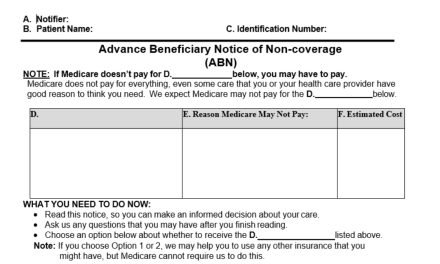
Legislative Update: Medical Malpractice Bill

The “Medical Malpractice” bill for health care providers was signed into law by the Governor, on August 25, 2005, as Public Act 94-677, and is effective as of the date of signing. Some of the General Assembly’s stated objectives are to enhance the State’s oversight of physicians and malpractice insurers, to reduce the number of non-meritorious malpractice lawsuits and to limit damages in other malpractice cases, to encourage physicians to continue providing health care services in Illinois and to practice in medical care shortage areas. The legislation makes changes to the Illinois Insurance Code, Medical Practice Act (under which chiropractic physicians, osteopathic physicians, and medical doctors are licensed), the Code of Civil Procedure and other laws. Although chiropractic physicians enjoy a far lower rate of malpractice litigation than other types of physicians, D.C.s should be aware of the legislation because it amends laws that affect them.
Some of the highlights of the bill are:
- Cap on non-economic damages -One of the most publicized parts of the new law is the cap on non-economic damages that patients may recover in malpractice suits, a maximum of $500,000 against a physician, and $1,000,000 against a hospital. These damages include “pain and suffering,” and are distinct from medical bills, hospital bills, lost time at work and the like. The caps will apply only to cases in which the alleged injury occurs on or after August 25, 2005. In the past the courts have declared similar damage limitation provisions unconstitutional, but at this point they are in place unless there is further court action.
- Medical Disciplinary Board -Two public members will be added to the Medical Disciplinary Board for a total of four public members, and public members will now be allowed to vote. The remainder of the Board shall still consist of 5 medical doctors, one osteopathic physician, and one chiropractic physician.
- Increase in number of medical investigators -More investigators will be hired to work on disciplinary complaints at the Department of Financial and Professional Regulation (DFPR).
- Statute of Limitations -The statute of limitations, which sets a deadline by which the Department must file a formal disciplinary complaint, has been increased to a maximum of 10 years. This allows the Department a longer range of time to discipline a license where the Department can prove that a physician has engaged in a pattern of practice of negligence over a period of time.
- Department of Professional Regulation disclosure of information -In response to subpoena, the Department may disclose its investigatory information and documents to law enforcement agencies for prosecution of criminal offenses.
- “Patient’s Right to Know Law” (physician profiling) -The DFPR is now required to make available to the public a physician profile that includes the following: physician’s name; criminal convictions within the previous 5 years; description of final DFPR and other state disciplinary actions within the previous 5 years; description of all medical malpractice court judgments and arbitration awards during the previous 5 years; medical schools attended with dates of attendance and graduation; graduate medical education; specialty board certification; number of years in practice and locations; and information regarding whether the physician participates in the Medicaid program. Some additional information is optional, including appointment to medical school faculties; publications in medical literature within the previous 5 years; and professional activities and awards. The Medical Disciplinary Board is required to provide each physician with a copy of his or her profile and an opportunity to correct inaccuracies. The DFPR is charged with promulgating rules to accomplish this new provision.
- Central collection of information by DFPR -Professional liability insurers are required to report to DFPR all claims filed after December 31, 2005, and all suits filed after December 31, 2005, in any court in Illinois alleging physician liability for medically related injuries. The circuit court clerks of Illinois are required to verify the accuracy and completeness of the information provided. Circuit court complaints are already public in the various county courts, but the DFPR will now become a centralized, public repository for the information. However, records made available to the public under the new Patient’s Right To Know Law must not include names and addresses of the parties. Additionally, the legislation does not appear to change the non-public nature of DFPR disciplinary complaints while they are in the investigatory, pre-formal stage.
- Expert report requirements -Illinois law requires that the initial filing of a medical malpractice suit be accompanied by an affidavit and report of a health professional who has determined that there is a reasonable and meritorious cause for the filing. The new legislation requires that these health professionals meet the same standards for experts who testify in medical malpractice lawsuits, which includes active practice, teaching or university-based research. The reviewing professional’s name, address, license number and state of licensure must be attached to the affidavit.
Advocates of this legislation argue that it was designed to provide protection for good doctors and stricter standards for the bad ones. Whether these changes will accomplish that objective remains to be seen, but clearly the public will have greater access to information concerning their physicians and the Department of Financial and Professional Regulation has a few more tools to enforce the Medical Practice Act. On the other hand, the new law should make it more difficult for plaintiffs to file non-meritorious malpractice suits, which will benefit both doctors and their patients by reducing the cost of health care.



















